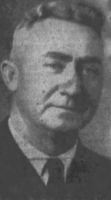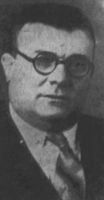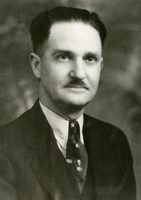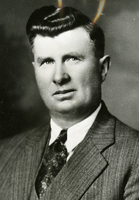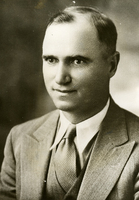Prohibition, 1920-1933
The United States ratified a constitutional ban on the production and sale of alcoholic beverages in 1920, but Utah had passed statewide alcohol restrictions in 1917, prohibiting even the possession of liquor in excess of 0.5%. Prohibition supporters hoped that the elimination of alcohol consumption would solve many of the country’s woes.
The era of Prohibition is often associated with criminal gangs, bootleggers and extreme violence. While Ogden didn’t see the same level of gang activity as in eastern states, there was still plenty of bootlegging and corruption in the city. Most bootleggers made sugar whiskey and homemade wine from raisins. Between 1923 and 1932, agents uncovered 448 distilleries, 702 stills, and 47,000 gallons of alcohol.
Ogden was known to be “wide open” and alcohol was relatively easy for individuals to obtain. Business owners on 25th Street found creative ways to hide and distribute their liquor supplies. Louis Prantil, who had been a stonemason in Italy before coming to the United States, owned a confectionary. He rigged a whiskey dispensing system with a copper tank hidden in the transom above a closet. Hidden in the wall was a rubber tube connected to a sink, where the whiskey could be dispensed.
Federal agents as well as city and county officers were poorly paid, making corruption quite common. Officers would often accept payments to turn a blind eye to illegal activity and some off-duty officers were found drinking during raids. In 1933 eight city and county officials were indicted by the federal government, including Ogden mayor Ora Bundy, Chief of Police A.E. Wilfong and Weber County Commissioner Fred Williams. The men were charged with over 1,000 offenses to aid conspirators in manufacturing, possessing, transporting and selling liquor.
Commissioner Williams was the first to stand trial. He was eventually found not guilty due to a lack of evidence. The judge ordered that the not guilty verdict applied to the remaining defendants as well because the prosecution could not prove conspiracy.
In 1933 the 18th Amendment was repealed, however Utah’s state prohibition laws still applied. Beer manufacturing and sells were exempted in 1934, but prohibition did not fully end in Utah until 1935. The new liquor laws created the State Liquor Commission which continues to control alcohol sales in Utah.


